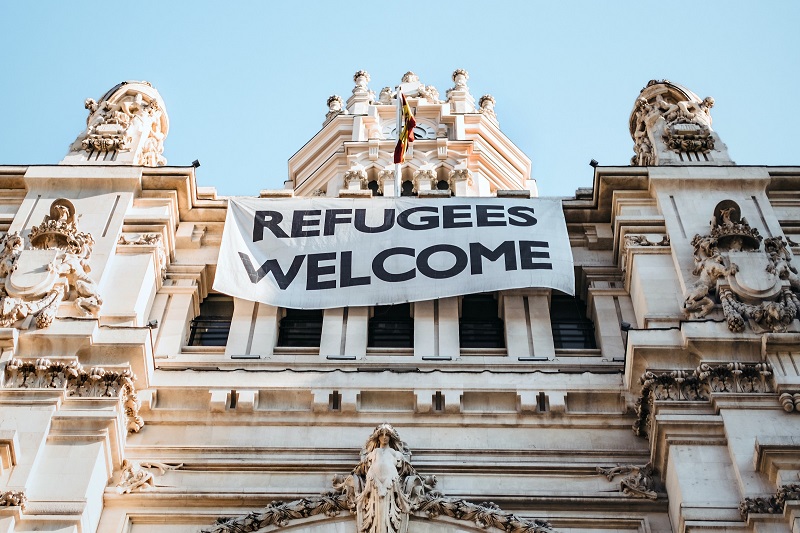
EU Explores Partnership with Egypt to Tackle Irregular Migration and Smuggling
To stop irregular migration and dismantle illegal people-smuggling networks, the European Union (EU) is considering the possibility of forming a comprehensive collaboration with Egypt. This possible partnership comes as EU officials look to broaden their efforts to address the root causes of tragedies connected to migration beyond a proposed €1 billion accord with Tunisia. The necessity of such measures has been brought home by the recent detention of nine Egyptians on suspicion of taking part in people smuggling after a shipwreck disaster off the coast of Greece that resulted in the deaths of at least 81 persons.
EU Leaders Look Beyond Tunisia Deal
The proposed deal with Tunisia received strong backing from EU leaders during a conference. Italian Prime Minister Giorgia Meloni asserted that Tunisia is a model for future alliances with other nations. These talks have opened the door for prospective conversations with Egypt, especially following a visit by Josep Borrell, the EU’s top diplomat for international relations. Borrell indicated a step in the right direction towards collaboration when he donated €20 million to help Egypt in its efforts to support Sudanese refugees.
Calls for Comprehensive Solutions and Sovereign Control
Poland, which has previously rejected EU immigration legislation, offered new requests to restart the legislative process before the summit. The nation put out an amendment declaring that the sovereign power of member states to conceive of their own immigration policies and choose who they admit onto their borders should serve as the foundation for the EU’s immigration and asylum policy. Poland also emphasised that member states should decide how to best assist countries dealing with a substantial influx of migrants, not the EU as a whole. These requirements contradict the “mandatory solidarity” idea adopted in Luxembourg.
Keep Reading
The Tunisia Deal and Human Rights Protections
Although specifics of the EU’s demands have not been made public, the Tunisia Deal calls for guarantees for respecting human rights. The deal’s specifics remain a point of contention; thus, negotiations are ongoing. As noted by the head of the European Commission, Ursula von der Leyen, if the arrangement with Tunisia moves through effectively, EU leaders have a considerable desire to investigate similar partnerships with other nations. These “out-of-the-box” alternatives are being taken into consideration to handle the complex issues related to migration.
A number of EU members, notably Denmark, Austria, and Greece, urged for creative answers to the urgent issue of irregular migration. There were conversations about looking into strategies influenced by the United Kingdom’s plans to send asylum applicants to Rwanda for processing, albeit the particular ideas were not made in detail. However, a London court recently ruled that such agreements were illegal. A number of member nations have shown support for employing third countries as processing centres, while others have voiced opposition. The readiness of the EU leaders to look into different options reflects their recognition of the issues brought up by nations like Greece and Denmark.
Broader Objectives of the Tunisia Deal and Ukraine Framework
Diplomats emphasised that the Tunisia agreement goes beyond only immigration and includes funding for the IMF’s suggested reform plan and grants for research, education, and the Medusa digital cable link to Europe. Along with the Tunisia agreement, EU leaders also decided to increase military and recovery aid for Ukraine, reaffirming their dedication to the nation’s long-term development. To address the issue of ammunition shortages experienced during the first year of the conflict in Ukraine, Estonia demanded a commitment to being “defence ready.” Leaders also decided to move on with plans to create a court that may hear cases involving “crimes of aggression” in addition to the International Criminal Court in The Hague. The subject of frozen assets and security responsibilities to Ukraine were also covered.
The EU is taking a solid stance against irregular migration and destroying criminal networks that are involved in people smuggling by considering a comprehensive partnership with Egypt. EU leaders are dedicated to addressing the underlying causes of migration-related tragedies by building on the prospective agreement with Tunisia. Although negotiations over the specifics of these alliances and agreements are still underway, the EU’s willingness to consider novel ideas and emphasis on upholding human rights point to a comprehensive strategy for tackling the difficulties associated with migration.




